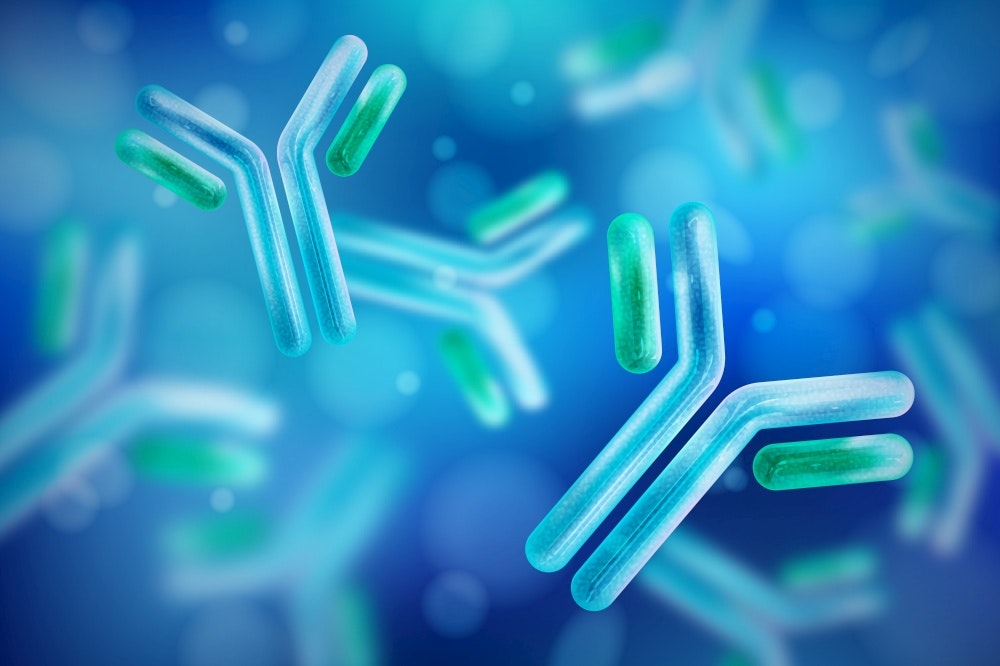Zymeworks on keeping immune system at bay when developing antibodies

We sat down figuratively with Zymeworks’ chief scientific officer Tony Polverino to talk all things antibody and their solution to challenges that surround bispecific antibody-based cancer therapies.
Clinical Insider (CI): What are the challenges that surround bispecific antibody-based cancer therapies?
Tony Polverino (TP): I think that the challenges fall into a number of different areas. One being manufacturing, as I indicated before the ability to bring two different molecules together, or two different binding arms together into the same molecule presents a challenge from an expression and a manufacturing perspective.
CI: How have you overcome these issues?
TP: Because of the design elements that we introduced into our Azymetric platform, we're able to generate very high yields of antibody with very high levels of purity, meaning it can generate therapeutics quickly at scale. With higher level of components and purity, we are optimizing those properties as we're delivering them to patients.
CI: What about flexibility?
TP: Our platform is very flexible. We can take a variety of different binding arms and put them together very quickly. We can use variants of those binding arms interchangeable easily, and that's important because of a number of things.
CI: Why is interchangeability important?
TP: The first one is biology as biology is very complex. In the case of binding the same protein, it's important that those two binding arms can interact, and binding can happen in the optimal manner. Sometimes if the two binding arms are too close together, they're not able to bind very efficiently. If they're too far apart, they're not able to bind together very efficiently either. However, because we have so much flexibility, we're able to identify the best binding partners and put them together into the same molecule.
CI: Why is it beneficial to have two different binding arms in one molecule?
TP: Traditionally antibodies have two binding arms and they normally target the same protein. It was recognized a long time ago that while that is incredibly valuable, and a lot of drugs have been developed utilizing that basic technology, in order to improve the activity in a variety of different settings, it's desirable to have two different binding arms together in the same molecule and that's what our platform does.
CI: Are there any other issues Zymeworks has found a solution for?
TP: We have recognized that sometimes it's very difficult to get absolute specificity against the tumor cell. A number of therapies that are being developed sometimes suffer from toxicities either because the antigen and the binding domain is not 100% unique to the tumor cells or the hyper activation of the immune system leads to some systemic toxicities, similar in some respects to what patients with COVID-19 have experienced.
CI: What is your solution to this?
TP: We thought about what the problem was and what we needed to solve. We wanted to solve the problem in two ways. The first problem was, how do we keep the immune system at bay and really focus to the tumor cells as much as possible and the second was, are there suppressive pathways or other activities we would like to introduce into our molecule to enhance the efficacy. So, ProTECT is a platform in which we think we've demonstrated an ability to really impact both ends of the therapeutic window.
CI: What have you done to enable ProTECT to address these problems?
TP: We've enhanced the activity and we've enhanced the safety. We maximize the therapeutic index by binding domains, in this case, the T cell binding domain and we mask that with proteins that interact with the immune system, such as checkpoint inhibitors, which have been very successful in a number of different tumors. Not only do we think that's a unique concept it is going to have broad applicability and we've designed it in a way in which we've maintained flexibility.
CI: Has COVID-19 influenced Zymeworks’ way of working?
TP: We have established processes and procedures to optimize the development of antibody-based therapeutics, I think COVID made us realize that we can move very quickly, if required. Cooperation between governments and companies really exemplified the overall good. However, it also obviously introduced a lot of challenges for everybody.
CI: What challenges occurred?
TP: [Issues included] the supply chain, which we had to deal with ourselves but overall, I think COVID impacted us just as it did anybody else. Our ability to develop and to deliver antibody-based therapeutics is only being strengthened now and that’s because of the ability antibodies have to impact disease and delivery of other types of therapies. We need to ensure that we have a very stable supply chain but also a very stable manufacturing base.
This article was first published in our sister publication BioProcess Insider on August 23.
Image: Stock Photo Secrets